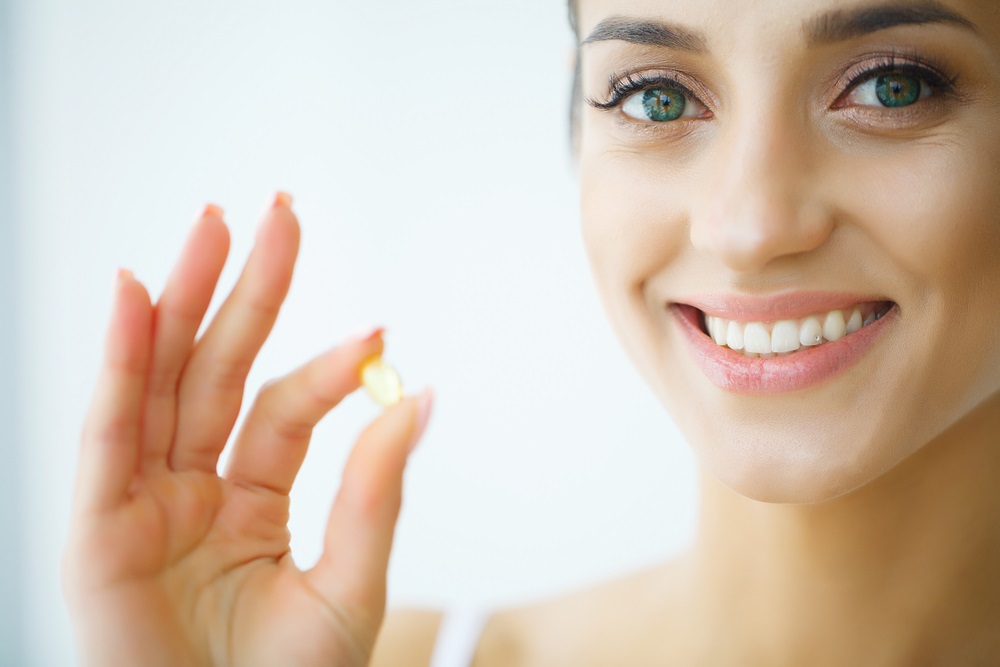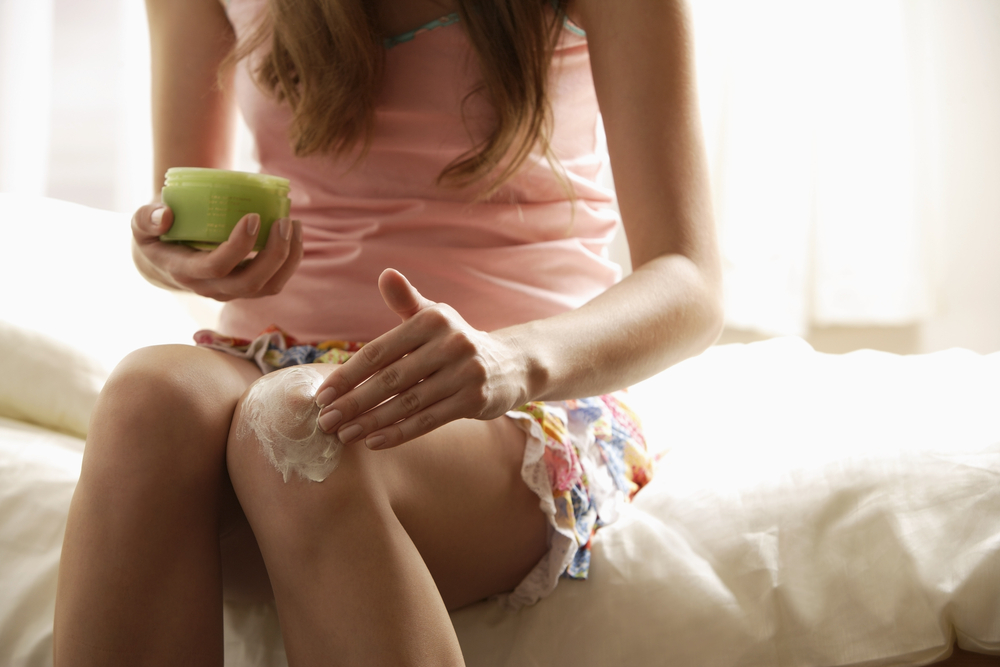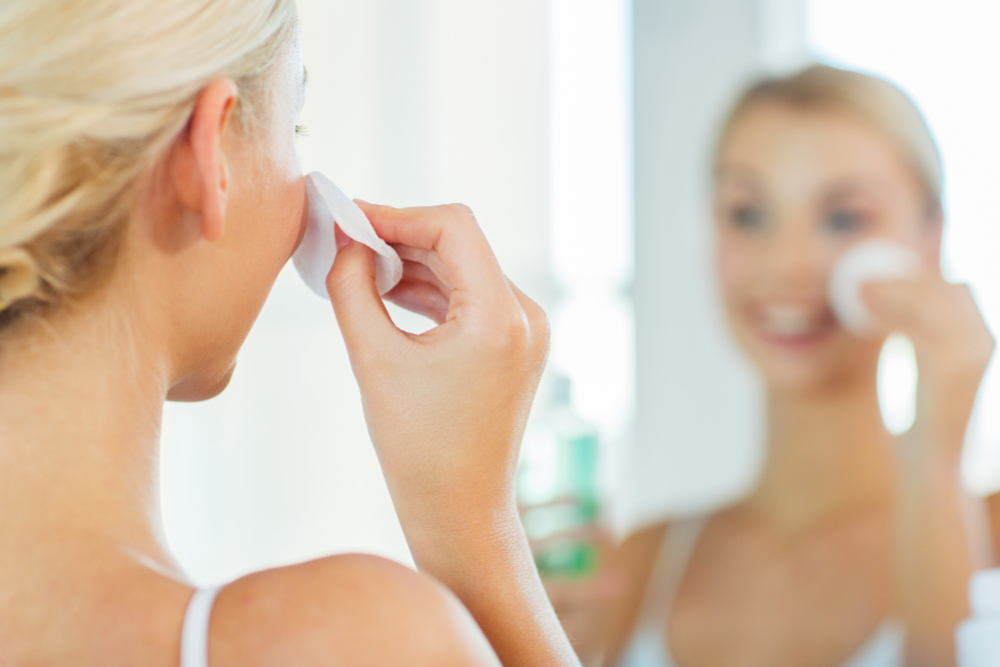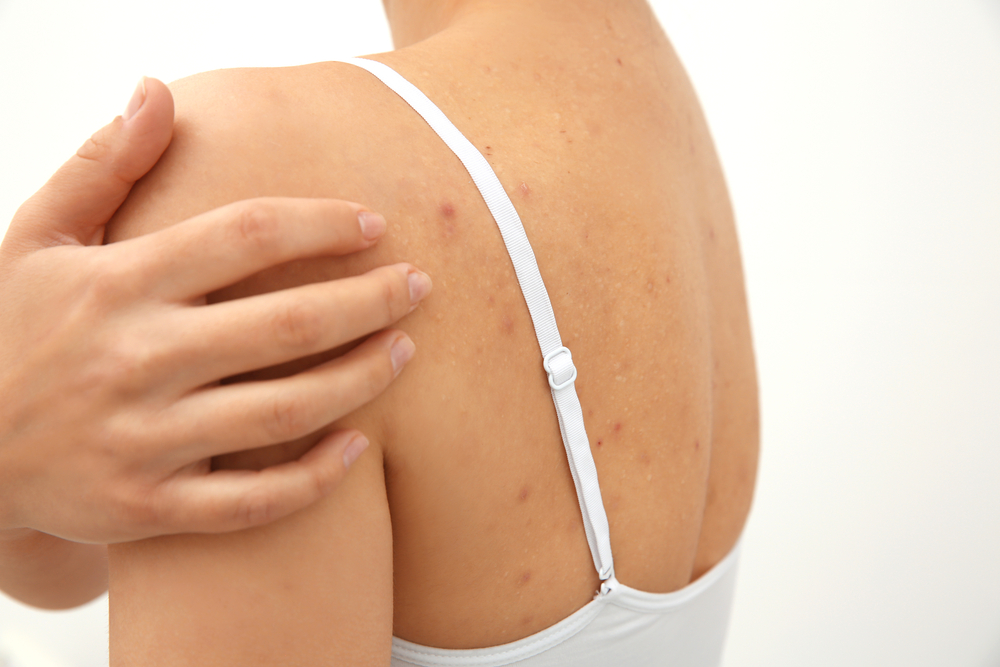- A small amount of dietary zinc is necessary for good health.
- Approximately 12% of the U.S. population is at risk for zinc deficiency.
- Zinc is effective at managing dandruff, warts, diaper rash, and preventing sun damage.
- Zinc is not as effective against acne, hair loss, eczema or psoriasis.
Zinc has been touted in the media as a miracle substance that can cure everything from the common cold to cancer.
While its benefits are in some cases over-hyped, research does support many of these claims — in fact, zinc has long been used to treat various skin concerns, and is one of the active ingredients in commercially available dandruff shampoos and mineral sunscreens.
Here, we present an overview of zinc and its use in dermatological treatments.
What is zinc, and how much do I need?
Zinc is a mineral and considered an “essential trace element“ because a small amount is necessary for good health in humans.
It is responsible for a number of functions in the body and helps to stimulate more than 100 enzymes. It is also necessary for proper functioning of the immune system. The body requires zinc to activate T lymphocytes (T cells), which control and regulate the immune system’s response to infected or cancerous cells.
The recommended daily allowance (RDA) for zinc in the United States is 8 mg per day for women and 11 mg for men.
Common sources of zinc include red meat, chicken, and fish. Zinc supplementation is also available in pill form as well as in topical creams.
Zinc deficiency
Zinc deficiency is common in the developing world. While it is less common in the United States, some 12% of Americans are at risk, particularly in impoverished communities. This percentage rises to 40% among the elderly.
Symptoms of zinc deficiency include:
- Poor appetite
- Hair loss
- Irritability
- Rough, dry skin
- Poor wound healing
- Altered sense of taste
- Diarrhea
- Nausea
- Impaired immune function
In addition to the above, children who are zinc-deficient may experience multiple issues including stunted growth and cognitive development.
Dermatological conditions and zinc
There is some evidence suggesting that zinc may be beneficial in the treatment of certain skin conditions, but more studies are needed to confirm its effectiveness.
Here is an overview of what science says to date.
- Sun damage prevention
Zinc oxide is an active ingredient in many sunscreen lotions. It works by scattering and reflecting sun’s damaging ultraviolet rays away from the skin.
- Acne
In a 2017 review study of scientific literature regarding zinc therapy for acne, researchers at the University of Miami concluded that zinc appears to be an effective treatment.
However, because of multiple problems with the studies they reviewed, the researchers can not recommend zinc therapy for acne until correctly designed studies are undertaken.
- Acrodermatitis enteropathica
This is a rare disease characterized by a rash (pustular dermatitis) around the mouth and anus, plus diarrhea and abnormal nails. The body is unable to absorb zinc from the intestine which leads to a zinc deficiency.
Zinc supplements appear to be effective in managing the symptoms of this disease.
- Warts
Several studies have demonstrated the effectiveness of oral zinc supplements in treating viral warts.
In a 2002 study in the British Journal of Dermatology, patients treated with oral zinc sulfate had a complete clearance of common, plantar, and plane warts.
In a 2010 study published in the Journal of Dermatology, the investigators also concluded that zinc was effective against multiple nongenital viral warts and had no serious side effects.
It therefore appears that zinc is useful for the treatment of several types of warts.
- Hair loss
Although lower zinc levels have been found to correlate with male and female pattern hair loss, it does not appear that zinc supplements are helpful in reducing or resolving this problem.
- Eczema (scaly, itchy skin)
Eczema is a condition most commonly seen in children. There is some evidence suggesting that children with eczema have low zinc levels. However, research has yet to confirm if oral zinc supplements are helpful as therapy.
- Psoriasis (red, irritated skin)
It does not appear that topical or oral zinc is effective for psoriasis.
- Melasma (brown patches on the face)
Zinc is not as effective for treating melasma as is the standard treatment of hydroquinone.
- Wrinkled skin
There is some support for the use of a skin cream containing 10% vitamin C, acetyl tyrosine, zinc sulfate, sodium hyaluronate, and bioflavonoids in treating wrinkled skin. Applying such a mixture to facial wrinkles appears to reduce their appearance after about three months.
- Diaper rash
Oral and topical zinc for infants with diaper rash appears to speed healing.
- Dandruff
A 2001 study in the Journal of American Academy of Dermatology found that people with dandruff exhibit abnormalities in the outer layer of the skin on the scalp—the stratum corneum (SC) ultrastructure.
These abnormalities are thought to contribute to the flaking that people with dandruff experience. When treated with commercially available shampoo that has zinc pyrithione, these abnormalities appear to resolve. However, the specific causes of dandruff remain unclear; more studies are needed.
Wound healing and zinc
One problem that people with zinc deficiency have is slow wound healing. It has been suggested that perhaps zinc supplements or topical zinc may help wounds heal faster.
- Burns
A 2006 study of burn victims in Iraq found that burn victims had decreased levels of zinc in their blood. Burn patients who were provided with zinc supplementation via IV experienced a rise in antioxidants. The rise in antioxidants corresponded with an improved healing time.
- Diabetic foot ulcers
Foot ulcers are a serious problem for people with diabetes. Zinc may reduce ulcer size and help them heal faster.
Data from a 2017 study on zinc and diabetic foot ulcers demonstrated that the group taking zinc supplements experienced a greater size reduction in their foot ulcers than did the control group.
- Leg ulcers
A review study conducted in 2014 concluded that oral zinc sulfate is not more effective than placebo for aiding in the healing of arterial and venous leg ulcers. However, a 2000 study indicates zinc supplements may be useful in the healing of such ulcers in people with low serum zinc levels.
Zinc side effects
Therapeutic zinc applied to the skin and ingested orally in amounts no greater than 40 mg daily appears to be well-tolerated by most people. However, some may experience the following symptoms with zinc therapy:
- Nausea
- Vomiting
- Diarrhea
- A metallic taste in the mouth
- Damage to the kidneys and stomach
If applied to broken skin, it may cause:
- Burning
- Stinging
- Itching
- Tingling
Patients who wish to try zinc supplementation as a therapy should do so under the guidance of their doctor.
Ingesting levels of more than 225 mg of zinc daily is unsafe and may lower copper levels in the blood, alter iron processing, reduce immune system effectiveness, and decrease blood levels of high-density lipoproteins.
Zinc drug interactions
Zinc may interfere with the function of certain medications. Patients who are on the following drugs should inform their doctor before beginning zinc therapy.
- Antibiotics
Zinc interacts with quinolone and tetracycline antibiotics in the gastrointestinal tract, interfering with their absorption. To prevent this, take the antibiotic at least four to six hours before taking zinc.
- Penicillamine
This is a drug used to treat rheumatoid arthritis. Zinc reduces how much of this drug is absorbed in the intestines. To prevent this, take zinc two hours before penicillamine.
- Cisplatin (Platinol-AQ)
A chemotherapy drug that zinc appears to deactivate, reducing its effectiveness in destroying cancer cells.
- Integrase inhibitors
Integrase inhibitors are used to manage HIV; zinc appears to reduce the blood levels of these medications. Lower blood levels may compromise their effectiveness.
- Type 2 diabetes medications
Taking zinc together with diabetes medications has the effect of reducing blood sugar to too low levels.
Is zinc effective?
There is no doubt that zinc is essential to good health. However, whether or not it is effective for managing a variety of skin conditions is still a matter of scientific debate.
Should you consider supplementing your zinc intake or applying topical zinc lotions or ointments to your skin, please consult with your doctor first.
» To learn more about zinc skin care products and treatments, meet our Medical Review Team.









